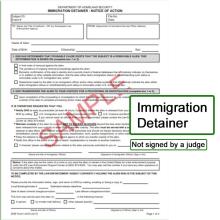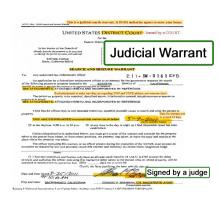All individuals in the United States have rights, regardless of immigration status.
The following information can help you protect yourself and your family, and defend your rights.
1. Create a safety plan
- Identify your emergency contacts and memorize their phone numbers.
- Provide your child’s school or day care with an emergency contact to pick up your child.
- Provide authorization in writing for your emergency contact to make medical and legal decisions for your child.
- Tell your loved ones that if you are detained by ICE, they can try to use ICE’s online detainee locator to find you: https://locator.ice.gov/odls/#/search
- Read more about guardianship considerations for immigrants in Illinois (PDF). Read more about guardianship considerations for immigrants in Indiana (PDF).
2. Defend your rights
All persons in the United States have constitutional protections, including the right to remain silent when questioned or arrested by immigration officers. Being stopped by immigration officers or other law enforcement can be frightening, but it’s important to stay calm. During any encounter with law enforcement, it’s important to do the following:
- Stay calm and don’t run, argue, resist, or fight the officer, even if you believe your rights are being violated or you are being treated unfairly. Keep your hands where police can see them, and tell them if you need to reach into a glove compartment or for a wallet to show your papers.
- Don’t lie about your status or provide false documents.
- If you are pulled over in a traffic stop: Ask if the officer is from the police department or immigration. Immigration officers often identify themselves as “police,” but they are not police. Ask if they are from Immigration and Customs Enforcement (ICE) or Customs and Border Protection (CBP). If they are immigration officers, follow these guidelines about what information to provide.
- If you are a U.S. citizen or have lawful immigration status: Show your passport, legal permanent resident card, work permit, or other documentation of your status. If you are over the age of 18, you should carry your papers with you at all times.
- If you are undocumented: You have the right to remain silent and do not have to discuss your immigration or citizenship status with the police, immigration agents, or other officials. Anything you tell an officer can later be used against you in immigration court.
- If an officer knocks on your door: Do not open the door. Teach your children not to open the door. Officers must have a warrant signed by a judge to enter your home. ICE “warrants” are not signed by judges; they are ICE forms signed by ICE officers and they do not grant authority to enter a home without consent of the occupant(s).
- If you are outdoors and think you see immigration officers nearby:
- Move to a safe indoor space
- If you are a U.S. citizen and feel safe to do so, record the activity with your phone or write down any relevant information about what you witness—ALWAYS being careful to not interfere or otherwise obstruct the operation
- DO NOT:
- Post unverified information on social media
- Interfere with the investigation or otherwise put yourself in harm’s way
Sample administrative and judicial warrants
Officers must have a judicial warrant signed by a judge to enter your home.
Click to enlarge each image
If you need support:
24-Hour Emergency Support: Call the Illinois Coalition for Immigrant and Refugee Rights (ICIRR) Family Support Hotline at 1-855-HELP-MY-FAMILY (1-855-435-7693). For additional resources, visit: https://www.icirr.org/community-resources
NIJC legal services for Illinois and Indiana: Chicago residents are eligible for free legal services from NIJC through the City of Chicago Legal Protection Fund. Immigrants in Illinois and Indiana can obtain free or low-cost legal consultations and representation from NIJC.




